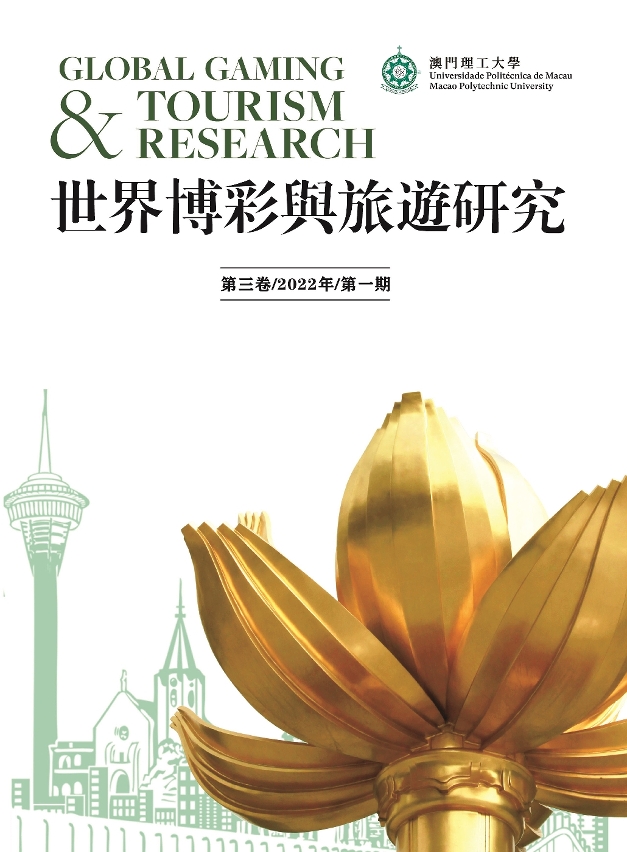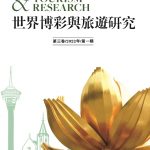 Global Gaming & Tourism Research (The First Issue of 2022) by MPU
Global Gaming & Tourism Research (The First Issue of 2022) by MPU
Macao Polytechnic University (MPU) has published the first 2022 issue of Global Gaming & Tourism Research. This current issue of the journal covers nine academic papers including five gaming research papers and four on the tourism aspect, with contributing authors from Macao, Mainland China and America.
The Guest Column, entitled “The Impact of Sands China’s Themed Integrated Resorts on Macao’s Tourism Industry”, is authored by Wilfred Wong Ying-wai. The article discusses how Sands China Ltd. has introduced the water town culture of Venice, Italy, the romance and fashion of Paris, France, and the rich history of London, England, through their three themed properties in Cotai. These large-scale properties also provide a diversified mix of attractions and experiences for visitors from Mainland China.
“A Comparative Study on the Development Model and Profitability of Global Gaming Companies—Evidence from 15 Listed Gaming Companies” is written by Ji Chunli and Zeng Zhonglu, Professors of the Centre for Gaming and Tourism Studies of Macau Polytechnic University, with the database on Gaming and Tourism of Macau Polytechnic University. Based on the data collected from 15 listed gaming companies with the highest operating income in the world, the article analyzes the income structure and profitability of those companies. It gfinds that there are no significant differences between Macao’s gaming companies and those from other countries (regions) in the proportion of gaming revenue or non-gaming revenue.
“Integrating Corporate Social Responsibility into Macao’s Gaming Law and Regulations: Scope, Methods and Measures”, written by Wang Changbin, Director of Centre for Gaming and Tourism Studies of Macao Polytechnic University, discusses the issue of the social responsibility of the gaming companies in Macao. The article proposes that by integrating corporate social responsibility into Macao’s gaming law, the performance level for such responsibility will be improved; however, the integration may take a variety of forms.
There are other articles regarding gaming research, which include “A Study of the ESG Green Investment of Macao Gaming and Tourism Industry” written by Fong Chun Cheong, Associate Professor of Macao Polytechnic University, and “Research on Global Responsible Gambling Models, Development Trend and Implications for Macao” written by He Qiuyue.
Regarding tourism research, “Geographical Advantage of and Historical Opportunities for Las Vegas” written by Gordon Yeh, a former management member of a gaming company in Las Vegas, analyzes the impact factors of how Las Vegas has evolved from a small desert town to a world-class tourist city. Other articles regarding tourism research are “Research on Perception Changes in Macao’s Tourism Image Based on Network Text Analysis” written by Liu Shangqing and Yin Ping, Professor of Beijing Jiaotong University; “Understanding Urban Sense of Place in the Digital Age: Perspective from the Geographies of Media and Communication” written by Dr. Xie Jia from South China Normal University; and “Festival Experience, Vivid Memory and eWOM: The Moderating Mechanism of Official App Engagement” written by Professor Li Xi and other scholars from the City University of Macau.
Global Gaming & Tourism Research is published semi-annually and covers key areas, including management and development strategies concerning gaming and tourism. The Journal welcomes contributions by experts from home and abroad. For enquiries, please contact Zeng Zhonglu (Professor of the Centre for Gaming and Tourism Studies and the Editor-in-Chief) at 8893 6229. Articles can be submitted to globalgaming@mpu.edu.mo.


